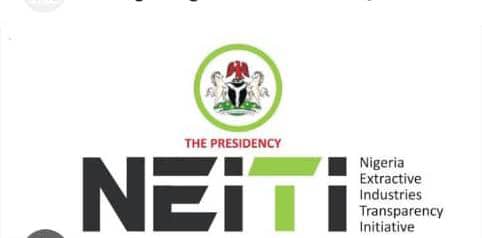The oil and gas sector generated over $831.14billion in revenues for the country between 1999 and 2023, according to the Nigerian Extractive Industries Transparency Initiative (NEITI).
But crude oil theft from 2009, when NEITI began computing reports, and 2023 also cost the nation 701.48 billion barrels.
The Executive Secretary of NEITI, Dr Orji Ogbonanya Orji, dropped the figures on Monday in Abuja when he appeared before the Senate Committee on Public Accounts (PAC).
Orji told the committee, which is headed by Sen. Ahmed Wadada, that his organisation examined the records and remittances by 78 firms covered in its 16-cycle reports on the extractive industries before coming out with the findings.
Giving some of the highlights in the recent years, he informed the committee that in 2021, the revenue inflow was $23bn; in 2022, it was $35.78bn; and $30.86bn.
The inflow last year, he said, represented a decrease of 13 percent compared to the figure drawn into the revenue net in 2022. “$831.14bn is what Nigeria has earned in the oil and gas sector from 1999 up to 2023”, he stated, adding that in terms of the outstanding revenues, the figure stood at $6.1bn.
“This revenue outstanding has yet to be collected by the government; that’s the royalties that NUPRC and FIRS have to collect”, he added.
Orji spoke of challenges with the sector, saying that the coming into being of the Petroleum Industry Act (PIA) still did not streamline the operations of the stakeholders to a point where the country would harvest handsomely from its investments.
For instance, he told the panel that there was still no “implementation strategy” for the law, a development that had allowed operations to operate at their own discretion.
He recalled that though the administration of former President Mohammed Buhari set up a Presidential Committee on the PIA, to work out the modalities for implementing the law, the committee never concluded its assignment before a new government was inaugurated in May 2023.
“The PIA is now being implemented without a plan or implementation strategy. “So, we recommend that either a new committee is set up or we revisit the work done by the present one that is inconclusive”, he said.
Orji commended the work done on the country’s refineries by the administration of President Bola Tinubu, saying that bringing the refineries back on stream had been part of the recommendations of NEITI for several years.
He explained that the existing public refineries and newly-licensed ones working simultaneously, would ultimately lead to adequate supply of petroleum products and a sustained drop in pump prices.
On how to contain oil theft and vandalism, NEITI suggested that oil companies must stop the arbitrary laying off of their trained workforce.
“These workers, especially when they’re well-trained, are the people later hired by the criminal elements to burst pipelines and steal crude oil.
“There should be some measure to protect the jobs of these company workers”, Orji further recommended.
Speaking about the solid minerals sector, Orji disclosed that it contributed N1.56trillion of revenue between 2021 and 2023.However, he said the sector still contributed less than one percent to the country’s GDP, “in spite of all the ongoing efforts by the government.”
The top states in solid minerals activities in 2021, according to NEITI, were Ogun, Kogi, Cross Rivers and the Federal Capital Territory (FCT).
The agency called for a review of the Solid Minerals Act to further ease up operations in the sector, just like the PIA was passed to address challenges in the oil and gas sector.
Senators expressed shock over the “pantry revenue” generated from the solid minerals sector, arguing that it hardly presented the true picture of the activities of the sector.
Sen. Victor Umeh, for example, asked, “Did you liaise with the Ministry of Solid Minerals Development in the course of writing your report?
“What we see here also does not include places like Zamfara, Nasarawa, Bauchi, Ebonyi and many other places.
“The minister of Solid Minerals was with us last week, and what he told us looked more of an improvement than this report”, Umeh observed.
On his part, Wadada noted, “Gold and other resources are being mined everyday. What is happening is quite ridiculous and unacceptable.We have to think more seriously.”
But, Sen. Osita Izunaso, opposed the idea of reviewing the mining law in the style down with the PIA, which he said had so far failed.
“We should be talking of increased regulatory functions, not necessarily a review of the law”, he stated.
Orji agreed that the solid minerals sector ought to be generating more funds for the government than it was doing now, adding, “it is that, is the money going into government account, no.”
Meanwhile, the committee announced that it would conduct a public hearing on the revenues generated by various revenue agencies like the NNPCL, FIRS, and NUPRC from the oil and gas sector.
“We are going to invite all of them; we will conduct a public hearing on the revenue operations”, Sen. Wadada said at the session, which was held at the National Assembly.


